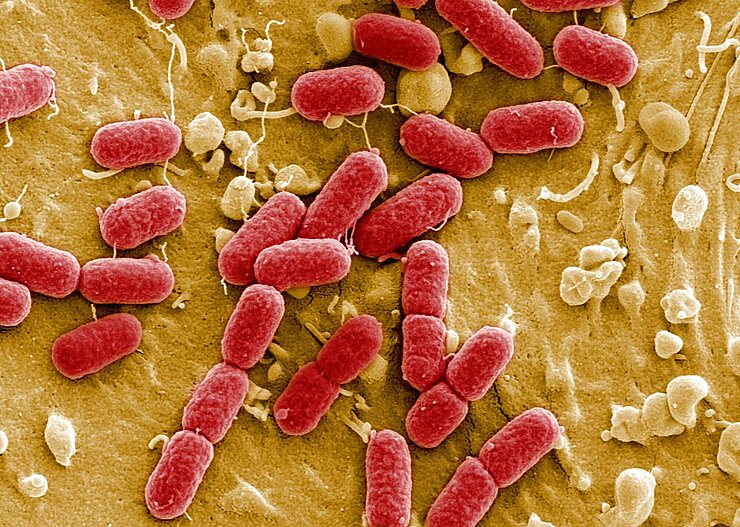Enterohaemorrhagic Escherichia coli – EHEC
EHEC bacteria are a dangerous subtype of E. coli, which are a common natural inhabitant of the human intestine.
They produce a poisonous compound called Shiga toxin and secrete it into the human gut. The toxin causes a cascade of inflammatory processes within the gut cells. These reactions are so vigorous that they can severely damage the human organism. About ten per cent of the patients develop the so-called “hemolytic-uremic syndrome” (HUS), characterized by the lysis of red blood cells and the clogging of blood vessels. HUS can lead to acute kidney failure and finally to death.
Infection with EHEC usually follows ingestion of contaminated food, especially raw milk products. The 2011 EHEC outbreak in Northern Germany, which killed 50 patients, was caused by the particularly aggressive strain “O104:H4”. The epidemic, characterized by a severe progression of the disease symptoms, was presumably transmitted by contaminated fenugreek sprouts of Egyptian origin.
HZI researchers have investigated the pathogenicity mechanisms of EHEC bacteria as well as the biological effects of Shiga toxin.
(mbn)


